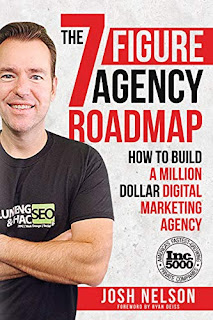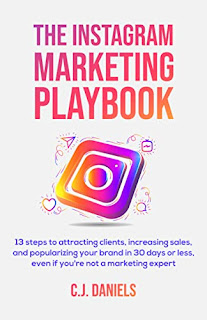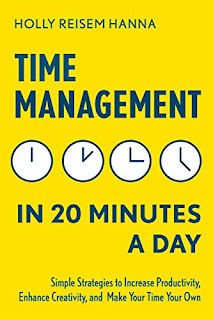Book Summary : Building a Story Brand
The greater part half a million business pioneers have found the force of the StoryBrand Framework, made by New York Times top rated creator and promoting master Donald Miller. Furthermore, they are making millions.
On the off chance that you utilize some unacceptable words to discuss your item, no one will get it. Advertisers and entrepreneurs battle to associate with their clients, costing them and their organizations millions in lost income reall
In a world loaded up with steady, on-request interruptions, it has become close unthinkable for entrepreneurs to really slice through the commotion to arrive at their clients, something Donald Miller knows direct. In this book, he shares the demonstrated framework he has made to help you connect with and genuinely impact client
The StoryBrand interaction is a demonstrated answer for the battle business pioneers face while discussing their organizations. Without a reasonable, unmistakable message, clients won't comprehend how you can help them and are reluctant to draw in, making you lose likely deals, valuable open doors for client commitment, and substantially more
In Building a StoryBrand, Donald Miller trains advertisers and entrepreneurs to utilize the seven general components of strong stories to decisively further develop how they associate with clients and develop their organization
His demonstrated interaction has assisted a great many organizations with drawing in with their current clients, giving them a definitive upper hand. Building a StoryBrand does this by instructing yo
The seven general story focuses all people answer
The genuine explanation clients make buys
Instructions to improve on a brand message so individuals figure out it; an
Step by step instructions to make the best informing for sites, pamphlets, and online entertainment
Whether you are the promoting overseer of a multibillion-dollar organization, the proprietor of an independent venture, a legislator campaigning for office, or the lead vocalist of a musical gang, Building a StoryBrand will perpetually change the manner in which you discuss what your identity is, what you do, and the exceptional worth you bring to your clients

Building a StoryBrand
Clarify Your Message So Customers Will Listen
By Donald Miller
HarperCollins Publishers
Canon PowerShot digital camera
Contents
Introduction
SECTION 1: WHY MOST MARKETING IS A MONEY PIT,
1. The Key to Being Seen, Heard, and Understood
2. The Secret Weapon That Will Grow Your Business
3. The Simple SB7 Framework
SECTION 2: BUILDING YOUR STORYBRAND,
4. A Character
5. Has a Problem
6. And Meets a Guide
7. Who Gives Them a Plan
8. And Calls Them to Action
9. That Helps Them Avoid Failure
10. And Ends in a Success
11. People Want Your Brand to Participate in Their Transformation
SECTION 3: IMPLEMENTING YOUR STORYBRAND BRANDSCRIPT
12. Building a Better Website
13. Using StoryBrand to Transform Company Culture
The StoryBrand Marketing Roadmap
Afterword
Acknowledgments
Praise for the StoryBrand Framework
Chapter 1
THE KEY TO BEING SEEN, HEARD, AND UNDERSTOOD
Most organizations squander gigantic measures of cash on advertising. We as a whole skill mind-desensitizing it is to spend valuable dollars on another showcasing exertion that obtains no outcomes. At the point when we see the reports, we can't help thinking about what turned out badly, or more terrible, whether our item is truly basically as great as we suspected it was.
Yet, consider the possibility that the issue wasn't the item. Consider the possibility that the issue was the manner in which we discussed the item.
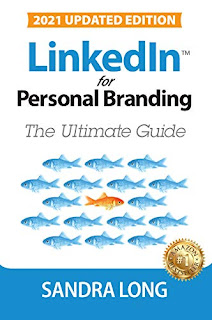
The issue is straightforward. The visual craftsmen and originators we're employing to fabricate our sites and pamphlets have degrees in plan and have a deep understanding of Photoshop, yet what number of them have perused a solitary book about composing great deals duplicate? What number of them know how to explain your message so clients tune in? Furthermore, more regrettable, these organizations are delighted to take your cash, whether or not you get results or not.
The truth of the matter is, beautiful sites don't sell things. Words sell things. What's more, on the off chance that we haven't explained our message, our clients will not tune in.

On the off chance that we pay truckload of cash to a plan organization without first explaining our message, we should hold a bullhorn up to a monkey. The main thing a potential client will hear is clamor.
In any case, it isn't not difficult to explain our message. I had one client say that when he attempted to do as such, he felt like he was inside the container attempting to peruse the name. I get it. Before I began StoryBrand I was an essayist and endured very long time gazing at a clear PC screen, considering what to say. That spirit tweaking disappointment drove me to make a "correspondence system" in view of the demonstrated force of story, and I swear it resembled finding a mysterious equation. The composing got more straightforward and I sold huge number of books. In the wake of utilizing the system to make clear messages in my books, I utilized it to channel the promoting guarantee in my own little organization. When we got clear, we multiplied in income for four continuous years. I presently instruct that structure to multiple thousand organizations every year.
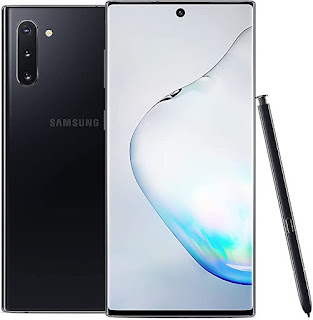
When they receive their message straight, our clients make quality sites, fantastic featured discussions, messages that get opened, and direct mail advertisements individuals answer. Why? Since no one will pay attention to you in the event that your message isn't clear, regardless of how costly your showcasing material might be.
At StoryBrand we've had clients twofold, triple, and, surprisingly, fourfold their income after they received one thing straight — their message.
The StoryBrand Framework has been similarly as viable for billion-dollar brands as it has for mother and-pop organizations, and similarly as strong for American companies as it has for those in Japan and Africa. Why? Since the human cerebrum, regardless of which area of the world it comes from, is drawn toward clearness and away from disarray.
Actually we aren't simply in that frame of mind to get our items to showcase; we're likewise in a competition to impart why our clients need those items in their lives. Regardless of whether we have the best item in the commercial center, we'll lose to a substandard item in the event that our rival's proposition is conveyed all the more plainly.
So what's your message? Might you at any point say it without any problem? Is it basic, important, and repeatable? Could your whole group at any point rehash your organization's message so that it is convincing? Have recently added team members been given arguments they can use to depict what the organization offers and why each potential client ought to get it?
What number of deals would we say we are passing up on the grounds that clients can't sort out what our proposition is in somewhere around five seconds of visiting our site?

WHY SO MANY BUSINESSES FAIL
To figure out why so many showcasing and marking endeavors fizzle, I called my companion Mike McHargue. Mike, frequently called "Science Mike" since he has a fruitful web recording called Ask Science Mike, endured fifteen years utilizing science-based systems to assist organizations with sorting out their clients' thought process, explicitly in the tech space. Tragically, he left publicizing when a client requested that he make a calculation foreseeing the related purchasing propensities for individuals with diabetes. Interpretation: they believed that him should offer low quality food to diabetics. Mike rejected and left the business. He's a decent man. I called, however, on the grounds that he actually has unbelievable understanding regarding how showcasing, story, and conduct all mix together
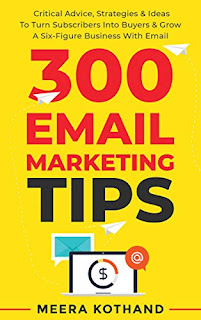
At my solicitation, Mike traveled to Nashville to go to one of our studios. Following two days learning the StoryBrand 7-Part Framework (from this point forward called the SB7 Framework), we sat on my back patio and I barbecued him with questions. For what reason does this equation work? What's going on in the cerebrums of shoppers as they experience a message separated through this recipe? How's the science behind why brands Apple and Coke, who naturally utilize this equation, overwhelm the commercial center
"There's an explanation most promoting security doesn't work," Mike said, resting on the foot stool. "Their advertising is excessively confounded. The mind doesn't have the foggiest idea how to deal with the data. The more basic and unsurprising the correspondence, the simpler it is for the cerebrum to process. Story helps since it is a sense-production component. Basically, story equations set up everything so the mind doesn't need to attempt to comprehend what's happening
Mike proceeded to make sense of that among the million things the cerebrum is great at, the abrogating capability of the mind is to help an individual get by and flourish. All that the human cerebrum does, the entire day, includes helping that individual, and individuals that individual thinks often about, excel throughout everyday lif
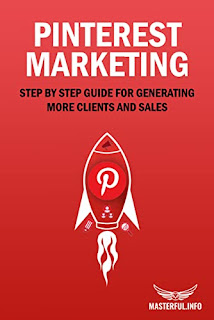
Mike inquired as to whether I recollected that old pyramid we found out about in secondary school, Abraham Maslow's pecking order of requirements. In the first place, he reminded me, the mind is entrusted with setting up a framework in which we can eat and drink and endure genuinely. In our cutting edge, first-world economy this implies having some work and a trustworthy pay. Then, at that point, the mind is worried about security, which could involve having a rooftop over our heads and a feeling of prosperity and power that holds us back from being defenseless. After food and sanctuary are dealt with, our minds begin contemplating our connections, which involve all that from recreating in a sexual relationship, to being sustained in a heartfelt connection, to making kinships (a clan) who will stay by us on the off chance that there are any friendly dangers. At long last then, at that point, the cerebrum starts to worry about more noteworthy mental, physiological, or even otherworldly requirements that provide us with a feeling of importance
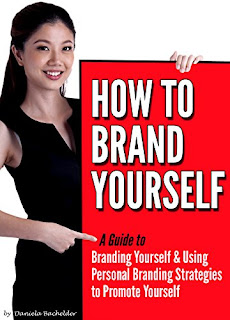
What Mike assisted me with understanding is that, without us knowing it, individuals are continually checking their current circumstance (in any event, promoting) for data that will assist them with meeting their crude need to get by. This implies that when we chatter endlessly about how we have the greatest assembling plant on the West Coast, our clients couldn't care less. Why? Since that data isn't assisting them with eating, drink, track down a mate, fall head over heels, construct a clan, experience a more profound feeling of importance, or store weapons in the event that savages begin coming once again the slope behind our circular driv
So what do clients do when we shoot a lot of commotion at them? They disregard u
Thus not too far off on my back patio, Mike characterized two basic mix-ups brands make when they discuss their items and administration
Mistake Number One
The primary slip-up brands make is they neglect to zero in on the parts of their deal that will help individuals get by and flourish.
All extraordinary stories are about endurance — either physical, profound, social, or otherworldly. A tale about whatever else won't attempt to spellbind a group of people. No one's intrigued. This truly intends that assuming that we position our items and administrations as everything except a guide in assisting individuals with making due, flourish, be acknowledged, track down affection, accomplish an optimistic personality, or bond with a clan that will safeguard them genuinely and socially, best of luck offering anything to anyone. These are the main things individuals care about. We can count on that reality. Or on the other hand to chapter 11 court, would it be a good idea for us we decide to overlook it as an obvious reality.
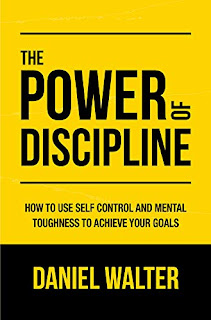
Mike said our minds are continually figuring out data thus we dispose of millions of pointless realities consistently. If we somehow happened to spend an hour in a monster dance hall, our minds could never remember to include the number of seats that are in the room. In the interim, we would continuously know where the ways out are. Why? Since our minds don't have to know the number of seats there that are in the space to make due, yet knowing where the ways out are would be useful in the event that there was a fire.
Without knowing it, the inner mind is continuously sorting and arranging data, and when we discuss our organization's irregular history or interior objectives, we're situating ourselves as the seats, not the ways out.
"However, this represents an issue," Mike proceeded. "Handling data requests that the mind consume calories. Also, the consuming of an excessive number of calories acts against the mind's essential work: to help us make due and flourish."
Mistake Number Two
The subsequent mix-up brands cause is they make their clients to consume an excessive number of calories with an end goal to figure out their proposition.
While handling a lot of apparently irregular data, individuals start to overlook the wellspring of that pointless data with an end goal to save calories. As such, there's an endurance system inside our clients' cerebrum that is intended to block us out would it be a good idea for us we at any point begin confounding them.
Envision each time we discuss our items to likely clients, they need to begin running on a treadmill. In a real sense, they need to run the entire time we're talking. How long do you believe they will focus? Not long. But this is definitively what's going on. At the point when we start our short presentation or feature address, or when someone visits our site, they're consuming calories to deal with the data we're sharing. Furthermore, in the event that we don't say something (and say something rapidly) they can use to get by or flourish, they will block us out.
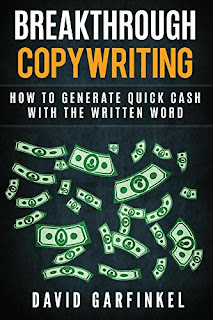
These two real factors — the truth that individuals are searching for brands that can help them get by and flourish, and the truth that correspondence should be basic — make sense of why the SB7 Framework has helped such countless organizations increment their income. The key is to make your organization's message about something that assists the client with getting by and to do as such so that they can grasp it without consuming an excessive number of calories.
STORY TO THE RESCUE
Mike concurred the most integral asset we can use to coordinate data so individuals don't need to consume a lot of calories is story. As he said, story is a sense-production gadget. It recognizes a vital desire, characterizes difficulties that are fighting to hold us back from accomplishing that aspiration, and gives an arrangement to assist us with vanquishing those difficulties. At the point when we characterize the components of a story as it connects with our image, we make a guide clients can follow to draw in our items and administrations.
Successful self publishing
In any case, when I discuss story to business pioneers, they promptly put me in a classification with craftsmen, thinking I need to acquaint them with something whimsical. In any case, that is not what I'm referring to. I'm discussing a substantial recipe we can use to collect consideration from in any case diverted clients. I'm discussing commonsense advances we can take to ensure individuals see us, hear us, and see precisely why they just should connect with our items.
THE FORMULA FOR CLEAR COMMUNICATION
Recipes are essentially the summation of best practices, and the explanation we like them is on the grounds that they work. We've been given extraordinary administration equations like Ken Blanchard's Situational Leadership and recipes we can use in assembling like Six Sigma and Lean Manufacturing. In any case, what might be said about an equation for correspondence? For what reason don't we have an equation we can use to really make sense of what our organization offers the world?
The StoryBrand Framework is that recipe. We realize it works since some type of this recipe has been dynamic for millennia to assist with peopling recount stories. Discuss a summation of best practices. With regards to getting individuals to focus, this equation will be your most impressive partner.
When you know the equations, you can anticipate the way most stories will take. I've taken in these equations so well that my significant other detests heading out to motion pictures with me since she knows eventually I will elbow her and murmur something like, "That person will kick the bucket shortly."
Story equations uncover a very much worn way in the human cerebrum, and to remain in business, we really want to situate our items along this way.
In the event that you will keep perusing this book, I need to caution you, I will demolish motion pictures for you. When it's all said and done, these things truly are equation based. They're unsurprising. What's more, they're unsurprising on purpose. Narrators have sorted out some way to save a group of people's consideration for quite a long time.
The uplifting news is these recipes work similarly as at engaging a group of people.
THE KEY IS CLARITY
The story emerging from an organization (and so far as that is concerned inside an organization) should be clear. In a story, crowds should constantly know who the legend is, what the legend needs, who the legend needs to overcome to get what they need, what terrible thing will occur on the off chance that the legend doesn't win, and what superb thing will occur on the off chance that they do. In the event that a group of people can't respond to these essential inquiries, they'll look at and the film will lose millions in the cinema world. In the event that a screenwriter disrupts these guidelines, they'll probably at no point ever work in the future.
The equivalent is valid for the brand you address. Our clients have questions consuming inside them, and on the off chance that we aren't responding to those inquiries, they'll continue on toward another brand. In the event that we haven't recognized what our client needs, what issue we are assisting them with addressing, and what life will resemble after they draw in our items and administrations, for instance, we can disregard flourishing in the commercial center. Whether we're composing a story or endeavoring to sell items, our message should be clear. Continuously.
Truth be told, at StoryBrand we have a mantra: "In the event that you confound, you'll lose."
BUSINESS HAS AN ENEMY
Business has a savage, guileful foe that, in the event that not recognized and battled, will reshape our organization into an unrecognizable wreck. The foe I'm discussing is clamor.
Commotion has killed more thoughts, items, and administrations than charges, downturns, claims, climbing financing costs, and, surprisingly, substandard item plan. I'm not discussing the commotion inside our business; I'm discussing the clamor we make as a business. What we frequently call showcasing is simply mess and disarray showered all around our sites, messages, and advertisements. Furthermore, it's costing us millions.
Quite a while back, a StoryBrand client who went to one of our studios pushed back. "I don't think this will work for me," he said. "My business is too different to even consider decreasing down to a straightforward message." I requested that he make sense of.
"I have a modern artistic creation organization with three distinct income streams. In one division we powder-coat vehicle parts. In another we apply sealant to concrete, and in another we have a sanitized composition process utilized explicitly in emergency clinics."
His business was assorted, however nothing so perplexing that it couldn't be rearranged so more individuals would recruit him. I inquired as to whether I could put his site on the monster TV screen so the whole studio could see it. His site was smart, yet it didn't seem OK according to an external viewpoint (which is the way every client sees your business).
The man had recruited an expressive arts painter to make a work of art of his structure (was he selling a structure?), and from the outset it seemed to be the site for an Italian café. The principal question I had when I went to the site was, "Do you serve free breadsticks?" There were 1,000 connections going from contact data to FAQs to a course of events of the organization's set of experiences. There were even connects to the philanthropies the business upheld. It was like he was responding to 100 inquiries his clients had never posed.
I requested that the class lift their hands assuming they figured his business would develop assuming we cleaned the site off and essentially highlighted a picture of a person in a white sterile garment painting something close to message that read, "We Paint All Kinds of S#*%," joined by a button in the page that said, "Get a Quote."
The whole class lifted their hands.
Obviously his business would develop. Why? Since he'd at last quit compelling clients to consume calories pondering his life and business and offered the one thing that would take care of his clients' concern: a painter.
What we assume we are expressing to our clients and what our clients really hear are two distinct things. Furthermore, clients go with purchasing choices not in light of what we express however on what they hear.
Quit SAYING THAT
All accomplished journalists know the way to extraordinary composing isn't in what they express; it's in what they don't say. The more we cut out, the better the screenplay or book. The mathematician and scholar Blaise Pascal is frequently credited for sending a long letter expressing he just lacked the opportunity to send a short one.
Chapter 2 THE SECRET WEAPON THAT WILL GROW YOUR BUSINESS
Occupations delivered Lisa with a nine-page promotion in the New York Times illuminating the PC's specialized highlights. It was nine pages of nerd talk no one external NASA was keen on. The PC bombarded.
Here is practically every story you see or hear more or less: A CHARACTER who needs something experiences a PROBLEM before they can get it. At the pinnacle of their depression, a GUIDE ventures into their lives, gives them a PLAN, and CALLS THEM TO ACTION. That activity assists them with keeping away from FAILURE and closures in a SUCCESS.
Keep in mind, the best foe our business faces is the very foe that great stories face: commotion. Never would it be a good idea for us we have the option to stop a film and not be able to respond to three inquiries:
What is it that the legend need?
Who or what is contradicting the legend getting what she needs?
What will the legend's life resemble assuming she does (or doesn't) get what she needs?
Here is the kicker: in the event that these three inquiries can't be addressed inside the initial fifteen to twenty minutes, the story has proactively slid into commotion and will without a doubt fall flat in the cinema world.
they ought to have the option to respond to these inquiries in no less than five seconds of checking out at our site or showcasing material:
What do you offer?
How might it improve my life?
What is it that I really want to do to get it?
Chapter 3 THE SIMPLE SB7 FRAMEWORK
A Character
When we recognize who our client is, we need to ask ourselves what they need as it connects with our image. The impetus for any story is that the legend needs something. The remainder of the story is an excursion about finding whether the legend will get what they need.
Has a Problem
On the off chance that we sell yard care items, they're coming to us since they're humiliated about their grass or they just lack opportunity and energy to accomplish the work. Assuming that we sell monetary exhortation, they're coming to us since they're stressed over their retirement plan. It may not be all around as sensational or hot as James Bond going to Q to get the most recent super advanced spy weapons, yet the reason is something similar: our clients are in a difficult situation and they need assistance.
Practically all organizations attempt to offer answers for outer issues, however as we unfurl the StoryBrand Framework, you'll see the reason why clients are substantially more spurred to determine their internal dissatisfactions.
Furthermore, Meets a Guide
Brands that position themselves as legends accidentally contend with their expected clients.
Their psyche thought design goes this way: Oh, this is another legend, similar to me. I wish I had additional opportunity to hear their story, yet the present moment I'm occupied with searching for an aide.
Who Gives Them a Plan
Making a buy is an enormous step, particularly on the off chance that our items or administrations are costly. What clients are searching for, then, at that point, is a make way we've spread out that removes any disarray they could have about how to work with us. The StoryBrand instrument we will use to make this way is known as the arrangement.
Also, Calls Them to Action
A source of inspiration includes imparting a reasonable and direct step our client can take to defeat their test and return to a serene life. Without clear invitations to take action, individuals won't draw in our image.
That Helps Them Avoid Failure
Brands that assist clients with keeping away from a pessimism in existence of some sort (and let their clients in on what that cynicism is) draw in clients for similar explanation great stories spellbind a crowd of people: they characterize what's in question.
What's more, Ends in a Success
Everyone needs to be taken some place. In the event that we don't let individuals know where we're taking them, they'll draw in another brand.
The principal project I'd like you to BrandScript is the one that addresses your general image. Next you'll need to make a BrandScript for every division of your organization, and from that point onward, every item inside every division. On the off chance that you like, you might in fact make a BrandScript for each fragment of your client base.
When you complete your BrandScript at mystorybrand.com, you will have the fundamental messages to utilize the SB7 Framework on your sites, in featured discussions, in short presentations, and in every possible kind of showcasing and informing security.
Chapter 4: A CHARACTER
StoryBrand Principle One: The client is the legend, not your image.
Monetary Advisor: "A Plan for Your Retirement"
School Alumni Association: "Leave a Meaningful Legacy"
Top notch Restaurant: "A Meal Everybody Will Remember"
Realtor: "The Home You've Dreamed About"
Book shop: "A Story to Get Lost In"
Breakfast Bars: "A Healthy Start to Your Day"
At the point when you characterize something your client needs, the client is welcome to modify their story toward you. On the off chance that they see your image as a dependable and solid aide, they will probably lock in.
Open a "Story Gap"
place a hole between a person and what they need. Moviegoers focus when there's a story hole since they keep thinking about whether and how that hole will be shut.
Hunger is the kickoff of a story hole and a feast ushers its end.
At the point when we neglect to characterize something our client needs, we neglect to open a story hole. At the point when we don't open a story hole in our clients' brain, they have no inspiration to connect with us, since there is no doubt that requests goal.
When a brand characterizes what their client needs, they are frequently at legitimate fault for committing the subsequent error — what they've characterized isn't connected with the client's feeling of endurance.
Think about these models:
Monitoring monetary assets.
Monitoring time.
Building informal communities.
Acquiring status.
Aggregating assets.
The natural craving to be liberal.
The craving for significance.
The objective for our marking ought to be that each potential client knows precisely where we need to take them: an extravagance resort where they can get some rest, to turn into the pioneer everyone loves, or to set aside cash and live better.
conceptualize what potential cravings your clients could have that you can satisfy.
Go with a choice. Pick something your client needs
Chapter 5: HAS A PROBLEM
StoryBrand Principle Two: Companies will generally offer answers for outer issues, yet clients purchase answers for inner issues.
The issue is the "snare" of a story, and in the event that we don't distinguish our clients' concerns, the story we are telling will crash and burn. When the contention in a story is settled, crowds quit focusing.
The antagonist is the main gadget narrators use to provide struggle with an unmistakable place of concentration.
The lowlife doesn't need to be an individual, however without question it ought to have exemplified qualities. Assuming we're selling time-usage programming, for example, we could attack the possibility of interruptions. Might we at any point offer our item as a weapon clients could involve to leave interruptions speechless?
The following are four qualities that make for a decent antagonist on your StoryBrand BrandScript:
The reprobate ought to be a root source. Disappointment, for instance, isn't a lowlife; dissatisfaction is what a miscreant causes us to feel. High duties, rather, are a genuine illustration of a bad guy.
The bad guy ought to be appealing. At the point when individuals hear us discuss the miscreant, they ought to promptly remember it as something they scorn.
The reprobate ought to be particular. One reprobate is sufficient. A story with an excessive number of antiheroes self-destructs for absence of lucidity.
The reprobate ought to be genuine. Never go down the way of being a manipulator. There are a lot of genuine reprobates out there to battle. How about we pursue them for our clients.
Is there an antagonist in your clients' story? Obviously there is. What is the main wellspring of contention that your items and administrations rout? Discuss this reprobate. The more you discuss the reprobate, the more individuals will maintain that a device should assist them with overcoming the lowlife.
The three degrees of issues legends (and clients) face are:
Outside Problems
Interior Problems
Philosophical Problems
Outside PROBLEMS
Indeed, the greater part of us are occupied with tackling outside issues. We give protection or garments or soccer balls. On the off chance that we own an eatery, the outer issue we tackle is hunger. The outside issue a handyman fixes may be a cracked line, very much like a bug control fellow could tackle the outer issue of termites in the upper room.
Inward PROBLEMS
By restricting our promoting messages to just outer issues, we disregard a rule that is costing us thousands and possibly a large number of dollars. That standard is this: Companies will more often than not offer answers for outer issues, however individuals purchase answers for inside issues.
The motivation behind an outer issue in a story is to show an inner issue.
What stories show us is that individuals' inner craving to determine a disappointment is a more prominent inspiration than their longing to tackle an outer issue.
For instance, on the off chance that we own a house-painting business, our client's outside issue may be an unattractive home. The interior issue, be that as it may, may include a feeling of humiliation about having the ugliest home in the city. Realizing this, our showcasing could offer "Paint That Will Make Your Neighbors Jealous."
Starbucks was conveying more worth than just espresso; they were conveying a feeling of refinement and energy about existence. They were likewise offering a spot for individuals to meet in which they could encounter connection and having a place. Starbucks changed American culture from hanging out in cafes and bars to hanging out in a neighborhood, Italian-style bistro.
The philosophical issue in a story is tied in with something significantly bigger than the actual story. It's about the inquiry why. For what reason does this story matter in the general epic of humankind?
PHILOSOPHICAL PROBLEMS
In the wake of making their BrandScript, a worldwide counseling firm we worked with started to discuss how everyone had the right to function for an extraordinary chief. A pet-storekeeper who came to us hung a sign in her window that said, "Pets have the right to eat good food as well." A carefree travel planner came to us and embraced the occasional line "Since this mid year ought to be recollected until the end of time."
On the off chance that we truly believe our business should develop, we ought to situate our items as the goal to an outside, interior, and philosophical issue and edge the "Purchase Now" button as the move a client should make to make conclusion in their story.
TESLA MOTOR CARS:
Lowlife: Gas chugging, sub-par innovation
Outside: I want a vehicle.
Interior: I need to be an early adopter of new innovation.
Philosophical: My decision of vehicle should assist with saving the climate.
NESPRESSO HOME COFFEE MACHINES:
Miscreant: Coffee machines that make awful espresso
Outer: I need better-tasting espresso at home.
Inward: I need my home espresso machine to cause me to feel refined.
Philosophical: I shouldn't need to be a barista to make a connoisseur espresso at home.
A huge issue the greater part of our clients face is they need to incorporate three bad guys and seven outer issues and four inside issues, etc. Yet, as I've previously referenced, stories are best when they are straightforward and clear. We must decide.
Explain YOUR MESSAGE SO CUSTOMERS LISTEN
Either alone or with a group, conceptualize every one of the strict and figurative bad guys your image stands firm against.
Conceptualize the outer issues your image settle. Is there one that appears to address the greatest area of items?
Conceptualize the inside issue (dissatisfaction or uncertainty) your clients are feeling as it connects with your image. Is there one that stands apart as an all inclusive encounter for your clients
Is your image part of a bigger, more significant story? Is there a philosophical wrong your image remains against?
Chapter 6: AND MEETS A GUIDE
StoryBrand Principle Three: Customers aren't searching for another legend; they're searching for an aide.
The lethal mix-up certain brands make, particularly youthful brands who accept they need to show off their abilities, is they position themselves as the legend in the story rather than the aide. As I've previously referenced, a brand that positions itself as the legend is bound to lose.
The pivotal error: Jay Z neglected to address the one question waiting in the subliminal of each and every legend client: How are you assisting me with winning the day? Flowing existed to assist the specialists with winning the day, not clients. Thus it fizzled.
The two things a brand should convey to situate themselves as the aide are Empathy and Authority
Sympathetic articulations start with words like, "We comprehend how it feels to . . ." or "No one ought to need to encounter . . ." or "Like you, we are disappointed by . . ." or, on account of one Toyota business welcoming Toyota proprietors to connect with their nearby Toyota administration focus, essentially, "We care about your Toyota."
Whenever we've recognized our clients' interior issues, we essentially have to tell them we comprehend and might want to assist them with tracking down a goal. Check your promoting material and ensure you've let your clients know that you give it a second thought. Clients won't realize you care until you tell them.
At the point when I discuss authority, I'm truly discussing capability. While searching for an aide, a legend believes someone who understands what they're doing. The aide doesn't need to be awesome, however the aide needs to have serious experience assisting different legends with winning the day.
There are four simple methods for adding a perfect proportion of power to our promoting.
Tributes
Insights
Grants
Logos
Explain YOUR MESSAGE SO CUSTOMERS LISTEN
Conceptualize compassionate explanations you can make so your clients realize you care about their inside issue.
Conceptualize the numerous ways you can show skill and authority by investigating expected tributes, insights that exhibit capability, grants you've won, or logos from different organizations you've succeeded.
Chapter 7 WHO GIVES THEM A PLAN
StoryBrand Principle Four: Customers trust an aide who has an arrangement.
An interaction plan can portray the means a client needs to take to purchase our item, or the means the client needs to take to utilize our item after they get it, or a combination of both.
Plan an arrangement.
Permit us to make a tweaked plan.
How about we execute the arrangement together.
with a muddled piece of programming, we should illuminate the means or even the stages a client would take after they make the buy:
Download the product.
Coordinate your data set into our framework.
Reform your client communication.
An interaction plan can likewise consolidate the pre-and post-buy steps. For example:
Test-drive a vehicle.
Buy the vehicle.
Appreciate free upkeep forever.
Keep in mind, the general purpose of making an arrangement is to lighten clients' disarray. Having multiple means may really add to, instead of lessen, disarray. The key is to work on their excursion so they are bound to work with you.
An understanding arrangement is best perceived as a rundown of arrangements you make with your clients to assist them beat their apprehension about working with you.
Apprehensive you'll be left with a lemon? CarMax won't sell a vehicle that doesn't fulfill their guidelines, and they put each vehicle through a restoration cycle to be certain it procures their quality certificate seal.
When you make your cycle or understanding arrangement (or both), consider giving them a title that will expand the apparent worth of your item or administration. For example, your cycle plan may be known as the "simple establishment plan" or the "world's greatest night's rest plan." Your understanding arrangement may be named the "consumer loyalty understanding" or even "our quality assurance." Titling your arrangement will approach it in the client's psyche and builds the apparent worth of all that your image offers.
Explain YOUR MESSAGE SO CUSTOMERS LISTEN
Either alone or with a group, conceptualize the basic stages a client would have to take to work with you (either a pre-or post-buy process plan or a mix of both).
What fears do your clients have connected with your industry? What arrangements might you at some point make with them that could reduce those apprehensions? Go ahead and utilize the notes element of your BrandScript, where there is more space, to archive your arrangement plan. Utilize the arrangement area, then, to report the title of your arrangement.
Do you impart one of a kind qualities to your clients? Might those qualities at any point be illuminated in an understanding arrangement?
Chapter 8 AND CALLS THEM TO ACTION
StoryBrand Principle Five: Customers don't make a move except if they are tested to make a mov
Your clients are assaulted with multiple thousand business messages each day, and except if we are strong in our suggestions to take action, we will be disregarded. If our invitations to take action are delicate, they won't be taken not
Actually when we attempt to sell latently, we impart an absence of faith in our item. At the point when we don't ask obviously for the deal, the client detects shortcoming. They sense we're requesting good cause as opposed to completely change them. Clients aren't searching for brands that are loaded up with uncertainty and need confirmation; they're searching for brands that have answers for their concern
At StoryBrand we prescribe two sorts of suggestions to take action: direct invitations to take action and momentary invitations to take action. They work like two periods of a relationship
It bears rehashing: there ought to be one clear button to push on your site, and it ought to be the immediate source of inspiration. At the point when I say, "one clear button," I don't want to actually say "just a single button," yet rather one that sticks out. Make the button an alternate tone, bigger, a bolder text, anything that you want to do. Then, at that point, rehash that equivalent button again and again so individuals see it as they look down the pag
Direct Calls to Action
Buy now
Call today
Plan an arrangement
Register today
Purchase now
Temporary Calls to Action
At the point when you assist your clients with taking care of an issue, in any event, free of charge, you position yourself as the aid
Temporary suggestions to take action come in all shapes and sizes. The following are a couple of thoughts to make temporary suggestions to take action of your ow
Free data
Make a white paper or free PDF teaching clients about your main subject area
Tribute
Test
Free preliminary
When clients choose to purchase our items, how might we build the apparent worth of those items and develop the positive experience they have with our image
To do this, we should characterize the stakes. What's in question in the client's story in the event that they do or don't decide to work with us? In the event that we've not characterized the stakes, we've not made the story fascinating
Explain YOUR MESSAGE SO YOUR CUSTOMERS LIST
Conclude what direct source of inspiration you need to make clear on the entirety of your promoting materia
Conceptualize any temporary invitations to take action you can make that will have a special interest an in your area, make correspondence with your clients, and position your image as an aid
Chapter 9 THAT HELPS THEM AVOID FAILURE
StoryBrand Principle Six: Every person is attempting to stay away from a grievous completion.
Brands that don't caution their clients about what could occur in the event that they don't buy their items neglect to answer the "so what" question each client is furtively inquiring.
What will the client lose on the off chance that they don't buy our items?
What adverse results would you say you are assisting clients with keeping away from? Might clients at some point lose cash? Are there wellbeing chances assuming that they keep away from your administrations? What might be said about open door costs? Might they at any point get or set aside more money flow with you than they can with a contender? Might their personal satisfaction at some point decline assuming they cruise you by? What's the expense of not working with you?
Explain YOUR MESSAGE SO CUSTOMERS LISTEN
Conceptualize the unfortunate results you are assisting your clients with staying away from.
Record no less than three of those outcomes on your StoryBrand BrandScript.
Chapter 10 AND ENDS IN A SUCCESS
StoryBrand Principle Seven: Never expect individuals comprehend how your image can transform them. Tell them.
Effective brands, as fruitful pioneers, clarify what life will resemble on the off chance that someone draws in their items or administrations. Nike vowed to carry motivation and development to each competitor. Moreover, Starbucks proposed to motivate and support their clients, each cup in turn. For quite a long time, Men's Wearhouse guaranteed, "You'll like the manner in which you look," and they even promised it.
The three prevailing ways narrators end a story is by permitting the legend to
Win a power or position of some kind or another.
Be bound together with a person or thing that restores them.
Experience some sort of self-acknowledgment that additionally restores them.
1. Winning Power and Position (The Need for Status)
So how might our image offer status? There are numerous ways:
Offer access: My better half loves utilizing her Starbucks enrollment card since it acquires her focuses, which acquires her status and a periodic free latte.
Make shortage: Offering a predetermined number of a particular thing makes shortage, and claiming something scant is much of the time seen as a superficial point of interest.
Offer an exceptional: Most organizations procure 70% or a greater amount of their income from a little level of their clients.
Offer personality affiliation: Premium brands like Mercedes and Rolex sell status however much they do extravagance.
2. Association That Makes the Hero Whole (The Need for Something External to Create Completeness)
Diminished tension: For years, marks that sell essential things like dish cleanser and glass cleaner have amusingly situated their items as hostile to uneasiness drug.
Decreased responsibility: Customers who don't have the right instruments should work harder in light of the fact that they are, indeed, deficient.
Additional opportunity: For some clients, time is the adversary, and in the event that our item can extend time, we're proposing to take care of an outer issue that is causing an inward dissatisfaction.
3. Extreme Self-Realization or Acceptance (The Need to Reach Our Potential)
Motivation: If a part of your image can offer or be related with a helpful accomplishment, open the conduits. Brands like Red Bull, Harvard Business Review, Under Armor,
Acknowledgment: Helping individuals acknowledge themselves as they are isn't simply something insightful to do; it's great promoting. Similar to the Dove lobby, American Eagle knocked some people's socks off when they sent off their Aerie crusade.
Amazing quality: Brands that welcome clients to partake in a bigger development offer a more prominent, more effective life alongside their items and administrations. Tom's Shoes fabricated a name for itself by selling sharp shoes while at the same time giving a couple to someone deprived in what they called a "one for one" model.
Proposing to close a story circle is significantly more straightforward than you suspect. Indeed, even the consideration of smiley, blissful individuals on your site is major areas of strength for a to offer the end of a story circle. Individuals need to be content, and those pictures guarantee your item will convey.
Explain YOUR MESSAGE SO CUSTOMERS LISTEN
Conceptualize the fruitful goal you're assisting your clients with accomplishing. What will their lives resemble assuming that they utilize your items and administrations?
Chapter 11 PEOPLE WANT YOUR BRAND TO PARTICIPATE IN THEIR TRANSFORMATION
Your image is assisting individuals with turning out to be better variants of themselves, which is something delightful. You are assisting them with becoming savvier, more prepared, all the more in great shape, more acknowledged, and more settled. Like it or not (and we truly want to believe that you like it), we are taking part in our clients' change, which is precisely exact thing they maintain that we should do.
Who does our client need to turn into? What sort of individual would they like to be? What is their optimistic character?
A legend needs another person to step into the story to let them know they're unique, they're better. That someone is the aide. That someone is you.
Here are a few instances of optimistic characters from StoryBrand graduated class:
PET FOOD BRAND From: Passive canine proprietor To: Every canine's legend
Monetary ADVISOR From: Confused and unfit To: Competent and brilliant
Explain YOUR MESSAGE SO CUSTOMERS LISTEN
Conceptualize the optimistic personality of your client. Who would they like to turn into? How would they like to be seen by others?
Utilize the "to" lines of your BrandScript to characterize an optimistic personality. Finishing up the "from" line is then straightforward. It's essentially something contrary to anything you characterize as their optimistic personality caught in the "to" line.
Chapter 12 BUILDING A BETTER WEBSITE
The BrandScript you've placed together needs to appear on sites, in email crusades, brief presentations, and deals scripts. You should alter existing advertising materials and make new and better materials, then, at that point, get those materials in the possession of expected clients.
The third segment of Building a StoryBrand gives both enormous and little organizations substantial, reasonable advances they can take to apply their StoryBrand BrandScript.
THE FIVE THINGS YOUR WEBSITE SHOULD INCLUDE
An Offer Above the Fold
Around the top, ensure the pictures and text you utilize meet one of the accompanying models:
They guarantee an optimistic character.
They vow to tackle an issue.
They state precisely exact thing they do.
Clear Calls to Action
Pictures of Success
We accept pictures of grinning, blissful individuals who have had a pleasurable encounter (shut an open story circle) by drawing in your image ought to be highlighted on your site.
Pictures of individuals grinning or looking fulfilled address us.
A Bite-Sized Breakdown of Your Revenue Streams
Not very many Words
As clients look down your page, it's OK to utilize an ever increasing number of words, yet by increasingly more I truly mean a couple of sentences to a great extent. Probably the best sites I've assessed have utilized ten sentences or less on the whole page.
TASK ONE: CREATE A ONE-LINER FOR YOUR COMPANY
A joke is a better than ever method for responding to the inquiry "What do you do?" It's in excess of a motto or slogan; a solitary assertion assists individuals with acknowledging why they need your items or administrations.
In the event that you utilize the accompanying four parts, you'll make a strong joke:
The Character
The Problem
The Plan
The Success
1. THE CHARACTER
This beginning with a person. A bustling mother. A retired person. Individuals should have the option to say "That is me!" when they hear your joke.
2. THE PROBLEM
Characterizing an issue sets off the idea in your client's psyche: Yeah, I really do battle with that. Can your image assist me with defeating it?
3. THE PLAN
You will not have the option to explain your whole arrangement in your joke, however you should allude to it.
4. THE SUCCESS
This is where you illustrate what life could resemble after clients utilize your item or administration.
Think about your initial joke an unfinished version. Get it on paper and test it over and over.
Print your joke on your business cards and in your web-based entertainment profiles. Print it on your bundling. Remember it for your email signature. Rehash it again and again to expand the rate opportunity clients will understand it.


















